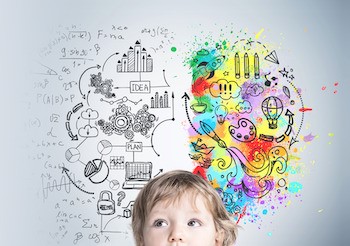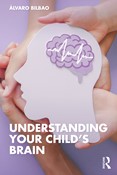Baby Einstein
Focussing on academics too early may not be the right way to give your child the best start in life.

You probably know that the first six years of a child's life are the most crucial for their development. However, many parents misinterpret this to mean that these years should be focused on academic learning to gain an advantage later in life.
Studies have shown that children who attend nursery schools that focus on academic achievement often struggle to adapt and develop emotionally and cognitively. These nursery schools may teach skills in reading, maths, or even playing an instrument, but they are not the most effective in promoting happy and healthy transitions to primary school. In fact, the level of rejection and difficulties in adapting to primary school is usually higher, simply because they have associated school with an environment that is too rigid and demanding.
So, if intellectual development isn't the most important thing during the early years, what is? To answer this, we need to look at how the brain develops.
Security and Love
The first years of life are crucial for brain development in several areas. The most important is the development of a "safe central nervous system." This means that children need to feel secure and loved in their environment so that their brains can be less vulnerable to stress. This is crucial for regulating other organs in the body, such as the heart and stomach, which are connected to the emotional regions of the brain.
In fact, a nurturing home environment and a warm, calm presence from carers and teachers can even help prevent chronic illness and mental health problems in adulthood.
Language
Learning vocabulary and speech are essential tools for children entering primary school and predicting academic achievement. However, children learn vocabulary naturally through everyday stimuli, such as stories and songs.
Nursery schools that prioritise play, singing and reading on a daily basis tend to be more effective in helping children to develop language skills, which can improve communication, social relationships, and prevent behavioural problems. Parents or schools that try to teach children two languages artificially may have the opposite effect, resulting in decreased understanding and expression skills and increased behavioural difficulties.
Motivation
Structures of the emotional brain associated with curiosity, attention, and motivation develop in the early years, especially from ages 2 to 6.
Free play, experimentation, contact with nature, and park time help children develop their psychomotor skills, as well as their desire to explore and play. Too much structured play and guided activities, as well as the use of screens in the classroom before age 6, can interfere with the development of important human abilities such as curiosity, creativity, and motivation, since they tend to enhance extrinsic motivation and reduce intrinsic motivation.
So, if you want your child to be a little genius, I have to say that, of course, there are programs which are quite successful in teaching children to speak Chinese or play instruments - but I would urge you to consider if they are the best thing for your child´s brain development and lifelong emotional well-being.

Dr Álvaro Bilbao, PhD, is a psychotherapist, doctor in psychology, neuropsychology, and father to three children. Trained at Johns Hopkins Hospital and the Kennedy Krieger Institute, he has also collaborated with the World Health Organisation. His book, Understanding Your Child’s Brain, is now available to purchase through Routledge and other online retailers.